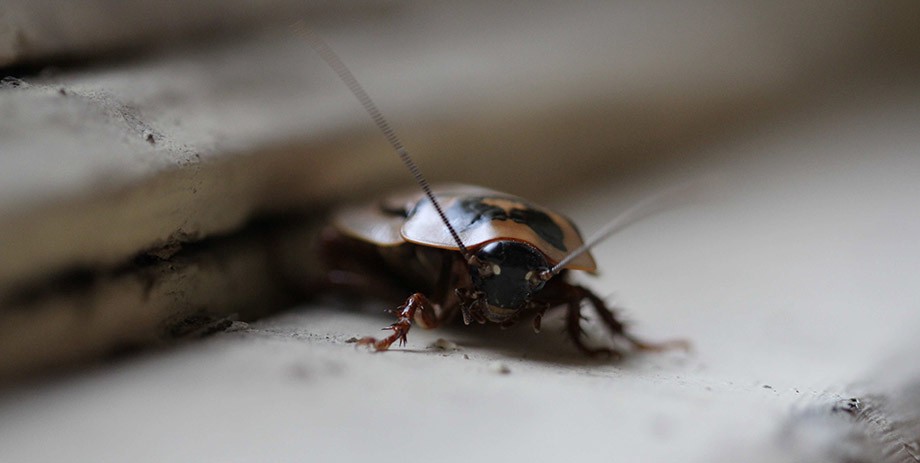Michelle Latimer, writer and director of the dramatic short The Underground, is an actor, filmmaker, and curator. Her award-winning documentary Alias
premiered at the 2013 Hot Docs Film Festival before screening internationally.
Her animated short Choke (2010)
premiered at the Sundance Film Festival, received a Sundance Special Jury
Honorable Mention in International Short Filmmaking, was named by Toronto
International Film Festival among Canada’s Top Ten of 2012, and nominated for a
Genie Award. She stars in the acclaimed television series Blackstone and appears as an industry judge on CBC’s Short Film Face Off. Latimer is
currently developing her first dramatic feature in collaboration with Sienna
Films and the National Film Board of Canada. (Press materials)
In The Underground, a young Iranian man struggles to fit into a new culture, his poverty and isolation leading him to imagine himself as an insect, absorbing the world through its senses. (TIFF official site)
The Underground will play at TIFF on September 11 and 12.
WaH: Please give us your description of
the film playing at TIFF.
ML: Inspired by Rawi Hage’s best-selling novel Cockroach, The Underground
is about an Iranian refugee who struggles to fit into North American society by
imagining himself as a cockroach, the only living creature that will survive
after humanity perishes in the apocalypse.
WaH: What drew you to this story?
ML: I love the novel that the film is based on. It lent itself well to
the magical realism I wanted to play with cinematically. The existential
writing is brave and unforgiving, and it thrust me into the mind of a
protagonist who is so beautifully flawed and angry. I was also interested
in exploring themes of cultural assimilation and loss of identity, and how the
metaphor of the cockroach has prevailed in all genocidal propaganda within the
last hundred years.
WaH: What was the biggest challenge in
making the film?
ML: I’m not particularly fond of cockroaches, so having a few
dozen on set at any given time required some deep breathing. I didn’t
know that cockroaches actually hiss until I made this film!
WaH: What do you want people to think
about when they are leaving the theatre?
ML: The film challenges ideas of freedom and is quite critical of
organized religion, especially in relation to how it has been used as a form of
repression throughout the world. It’s always bothered me that, here in
North America, we like to think that we are above the kind of conflict we see in
other countries. But I would argue that the repression apparent in our
society is more subversive.
Despite living in a “free and democratic” country, there still remains a persistent notion of a human underclass. This story illuminates how this notion impacts our humanity and how, as
citizens, we have a responsibility to care for one another. My [Native Canadian] Elders say
that a society is only as strong as the weakest among us, and I believe that.
WaH: What advice do you have for other
female directors?
ML: Speak your truth, and you will find your comrades. And have a
place where you can go to refill your solitude — this is very important.
WaH: What’s the biggest misconception
about you and your work?
ML: I guess if I could wish for one thing, it would be to be seen and
referred to simply as a “director,” not an “Indigenous” or “female” or an “Indigenous-female director,” but simply as a “director.” When’s the last
time you heard a guy referred to as “that male director”? I hope we can get to that place one day.
WaH: How did you get your film funded?
ML: This film was supported through the Canadian National Screen
Institute’s Drama Prize. They choose four films a year to support, and
ours was one of them. In addition to that, we also received financing
from the Canadian Arts Councils, the National Film Board of Canada, as well as
private funding from AMAZE Film and Television, and we pre-sold the film for
broadcast within Canada prior to production.
We pulled a lot of favors
and were very fortunate to have a number of production and post-production
facilities donate resources. We exhausted all our avenues and didn’t take
no for an answer, but it took some very creative budgeting to make the film we
envisioned.
WaH: Name your favorite women-directed
film and why.
ML: I really love the Greek
film Attenberg, written and directed by Athina Rachel Tsangari. It’s original and quirky, and I love the physicality of the performances. Lately, I’ve also been frequently referencing The Arbor, the
first feature by UK director Clio Barnard. The narrative structure is
exceptional, and I love the experimental approach. The film embraces a
hybridity between doc and drama where the actors actually lip-synch documentary
interview. Whenever I get scared of failing, I watch this film and am reminded
how important it is to push boundaries and not to fear the unknown.







